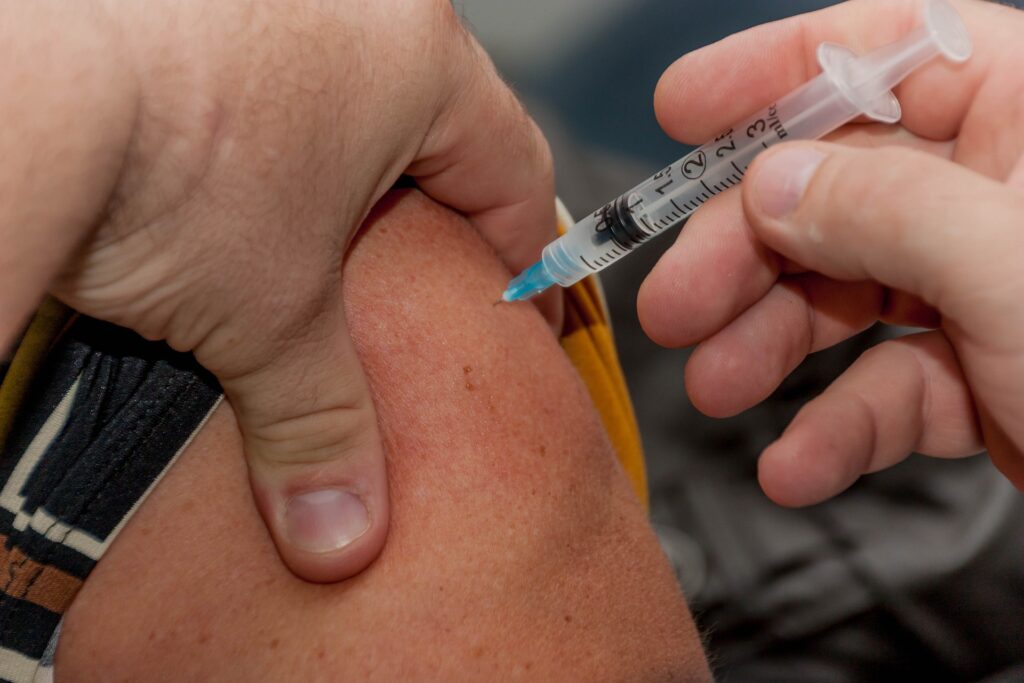More than 39 adverse reactions (ADRs) to vaccines against covid-19 were registered in Portugal by the end of 2022, which corresponds to 1,4 cases per 1.000 doses administered, indicates a report by Infarmed.
“Until December 31, 2022, there were a total of 39.135 notifications of cases of suspected ADR” following the almost 28 million doses administered since the start of vaccination, says the document, the last one that the National Medicines Authority (Infarmed) regularly publishes on the safety of vaccines against the SARS-CoV-2 virus.
According to the national regulator, of the total ADRs registered in the National Pharmacovigilance System (SNF), 8.518 were considered serious cases, equivalent to 0,3 cases per 1.000 vaccines administered.
The report also adds that adverse reactions to vaccines against covid-19 "are infrequent" and severe cases are considered as "rare frequency", according to the classification of the World Health Organization.
“Of the cases of ADR classified as serious, about 84% concern situations of temporary incapacity (including absenteeism from work) and others considered clinically important by the notifier, whether he is a health professional or a user”, advances Infarmed.
Of the 8.518 reports of cases of suspected severe reaction, “142 had a fatal outcome” – 0,005 cases per 1.000 vaccines administered – and occurred in a group of people with a median age of 77 years, says the document.
The national regulator points out, however, that, in the vast majority of reported cases in which there is information on clinical history and medication, “a fatal adverse outcome can be explained by the patient's clinical history and/or other treatments, the causes of death being diverse and without presenting a pattern”.
“During vaccination campaigns, it is expected that deaths from other causes will continue to occur, sometimes in close temporal association with vaccination, and without necessarily having any connection with vaccination”, explains Infarmed.
According to the report, in children between 5 and 11 years old, the 50 cases reported as serious mostly refer to situations already described in the vaccine information, such as fever, vomiting, diarrhea, malaise and headache, two cases of myocarditis that progressed to cure were reported.
In the age group of 12 to 17 years, the 127 cases considered serious were related to syncope or pre-syncope and allergic-type reactions, which mostly had a positive evolution and without sequelae, including the 20 of these cases that were reported as myo/pericarditis .
“It should be noted that myocarditis and pericarditis are inflammatory diseases of varied etiology, normally associated, especially in this age group, with viral infections”, says Infarmed.
Among the most reported adverse reactions to vaccines in the SNF are pain at the injection site, headache, muscle and joint pain, fever, fatigue, chills, nausea, general malaise and drowsiness.
Infarmed, which published these reports to “inform the public” throughout the vaccination campaign, adds that it will now stop regularly publishing this document, considering the “more robust knowledge of the safety profile” of vaccines.
Its monitoring, as for any other medicine, continues throughout the drug's life cycle, the regulator also mentions, adding that it is estimated that, in 2021 alone, vaccines against covid-19 will have prevented more than 250 deaths across the European Union.
From the start of the vaccination campaign until December 31, 2022, 27.981.130 doses were administered in Portugal, of which 63,8% corresponded to the original Comirnaty vaccine, 13,2% to the original Sipkevax, 10% to the bivalent Comirnaty, 8,1 .4,1% to Vaxzevria, 0,8% to Jcovden and XNUMX% to bivalent Sipkevax.



















Comments